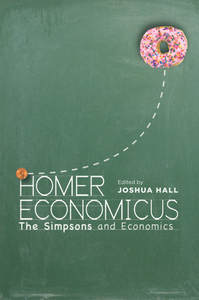
Lisa writes to the International Olympic Committee and asks them to consider Springfield as a potential host city for the Olympic games. A bickering committee, lobbying for their own countries, cannot agree so the IOC chairman decides they should visit Springfield. Homer enters the competition to select the mascot for the games. His "Springy" mascot wins. However, Homer's hope of making money from his dangerous mascot are dashed after Bart's unsavoury antics in front of the IOC representatives (and despite Chief Wiggum's attempts to offer the IOC members women, drugs and money).
Many will recognise the black humour in the words of newscaster Ken Brockman when he says that economists predict that Springfield will experience the same boom that Sarajevo enjoyed after the 1984 games. Sarajevo hosted the 1984 Winter Olympics (Los Angeles hosted the 1984 Summer games). Within a decade Sarajevo was a war zone. Jim Waterson at BuzzFeed provides 19 Haunting Pictures of the venue.
It is only a cartoon character, like Ken Brockman, that would get away with making those comments about Sarajevo. However, it does illustrate a central point made by economists about the costs and benefits of such events. For example, previous posts on this site have highlighted the costs associated with 2014 Sochi Olympics (here) , the optimism bias and strategic claims by bidders (here), and the manner in which voters in other potential host cities are withdrawing from the bidding process. Last Saturday, Robbie Butler discussed the Brazil Olympics on a radio station in Montreal (a city that only recently fully paid for its 1976 Summer Games).
The cost to cities seeking to host the games are outlined in Michael Leeds and Peter von Allmen's textbook The Economics of Sports. Leeds & von Allmen say it cost Los Angeles $1m for its unsuccessful 1924 bid and Cleveland $3m for its unsuccessful bid for the 1932 games. They say Montreal spent C$1.6 billion on the 1976 games. Leeds & von Allmen point out that those bidding are dealing with a monopolist that seeks to maximise its return for awarding the games to a city. They argue that it is the monopoly that the IOC have that allows it to extract resources from bidding cities.
Homer's attempt to benefit from the games with his Olympic merchandise reflects the large amounts of money that are associated with Olympic merchandise. In his book The Economics of Staging the Olympics, Holger Preuss produced IOC figures revenues for such items. Preuss showed that the Organising Committee of the Olympic Games expected to get €151m from "pin" revenues in Athens 2004 (coins and stamps also generated significant revenues).
Homer ended up literally flushing his investment down the toilet. His investment was derailed by events outside his control (even if he is Bart's dad). There are some similarities with McDonalds scratchcard promotion for the 1984 Los Angeles games when the USSR boycott cost them many meals (see here). Fans of The Simpsons will know that the series alluded to this in Lisa's First Word where Krusty Burger offers a similar promotion.
More sports economics from The Simpsons to follow!
 RSS Feed
RSS Feed